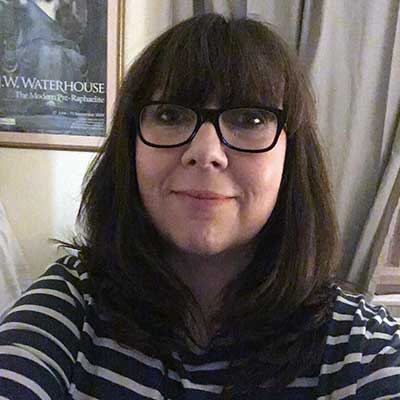No man is an island. But some, by accident or design, are destined to create their own little enclave away from culture’s mainstream continent. Nick Saloman is one of those men. For nearly 30 years he has been a standing stone in the British psych underground as leader of lynchpins The Bevis Frond, as well as championing home-grown independence as a record label owner, publisher of esoteric magazines and, more recently, internet radio show presenter.
These days, when Saloman isn’t busy making music – he’s recorded 21 albums as the Bevis Frond, and another, Example 22, is set to join the list imminently – or following his beloved Queens Park Rangers FC, he’s absorbed in his latest adventure: second‑hand record emporium Platform One Records. Situated inside an antiques market in a former Victorian railway station, the shop is just a 10-minute stumble from the beach promenade in Bexhill-on-Sea, East Sussex.
Today a pleasantly rumpled Saloman greets us warmly as we step into his compact but well-ordered unit. It’s the start of the working day, but already two regular customers are getting stuck into the prog, psych and ‘New In’ crates.
“Considering we don’t advertise it’s going pretty well,” Saloman says, brightly. “We’ve got dealers who visit from London, Japan, the US, plus kids who are just getting into things like Tim Buckley and John Martyn. People seem to have a radar for stuff like this.”
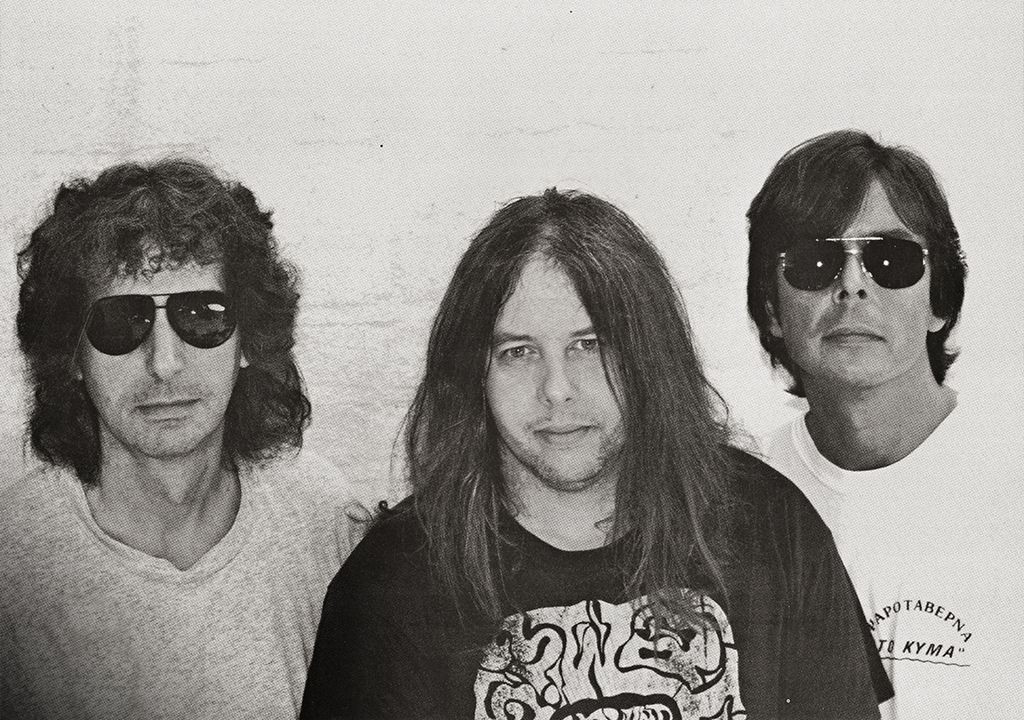
In his 62 years on the planet, Saloman’s own musical radar has been well-honed too. Raised by a single mother in St John’s Wood, North London – home of the historic Abbey Road Studios – young Nick saw The Beatles when he was 10. By 16 he was checking out hairy hipsters at the Camden Roundhouse, Belsize Park Country Club and the Marquee. His mum, Joanna, a pianist and author, was his musical bellwether. “She came in one day after being over to see a friend of hers who had teenage sons, saying: ‘Oh, you’d really like this new album they’ve got. It’s by a band called The Doors…’” he says.
Influenced by The Kinks, The Who, The Move and The Beatles, by his early teens Saloman was writing his own quintessentially English songs, which he sung in an all-important indigenous brogue. His first band was called Museum, but it would be his former school friend and neighbour, future film director Julien Temple, who suggested he adopt the name of a delicately sweeping fern discovered by Victorian botanists. “He said: ‘You want to call it Bevis Frond,’” recalls Saloman, who was impressed enough to compress the two ideas into The Bevis Frond Museum.
A pivotal moment came in 1968, when Saloman looked out of the classroom window at St Marylebone Grammar School in central London and spotted a press frenzy across the street at the local magistrates’ court. “John Lennon and [wife-to-be] Yoko Ono had been on trial after being busted for cannabis possession,” he remembers with a grin. “I knew they’d be coming out, so I stuck my hand up and said: ‘Please, sir, can I go to the toilet?’ And the teacher went: ‘Mmm… yeah, alright.’ And I ran out of the school, went across the road and got in the crowd. Out come John and Yoko, and I was two yards away. I remember thinking: ‘Wow, Yoko Ono is really pretty.’ I hadn’t realised.”
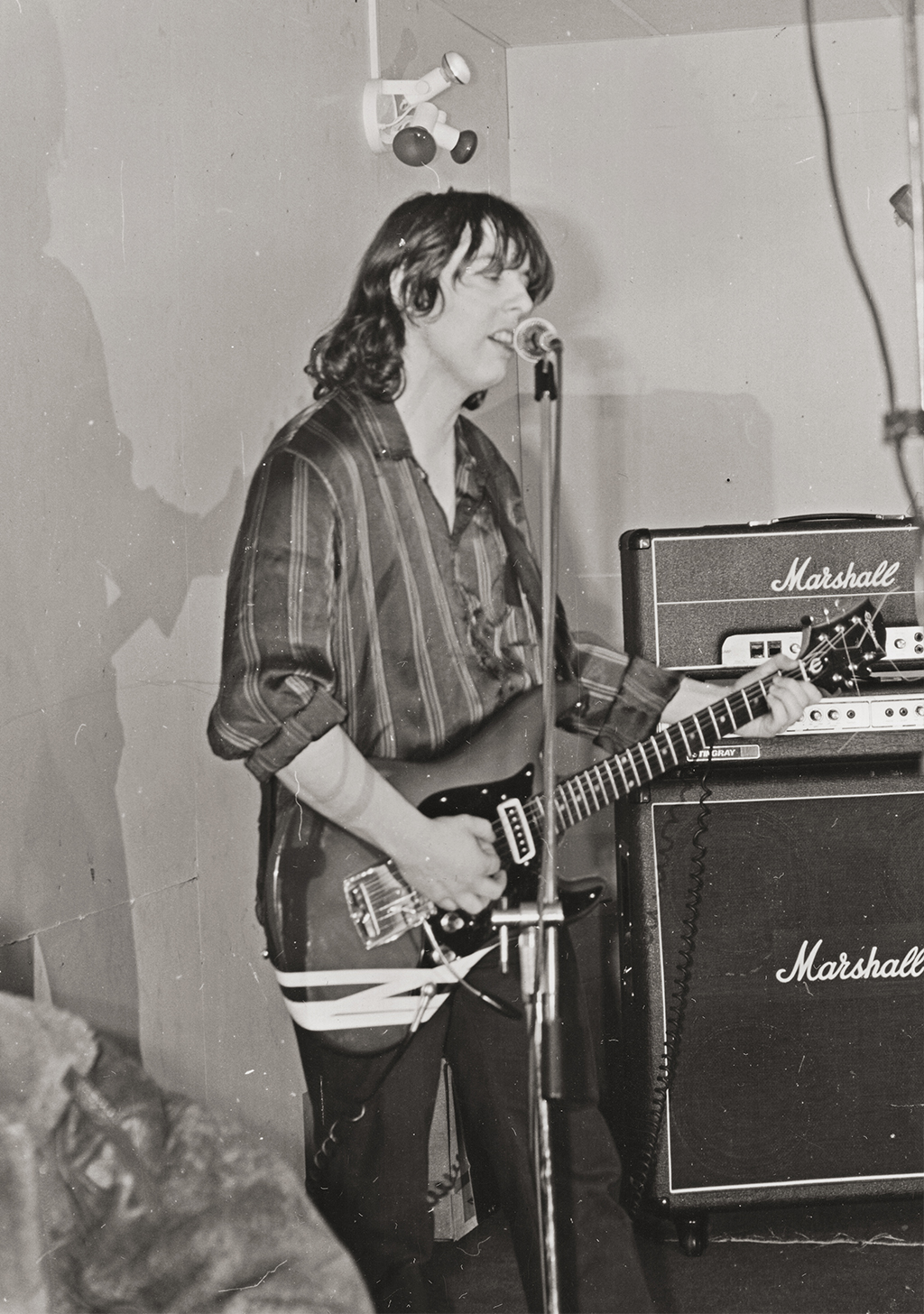
He left school with six O Levels, one A Level (“I should have got my History one fine, but the night of revision Vanilla Fudge were playing at the Marquee”), and an abiding love of music. He tried to get his foot on the ladder when he auditioned unsuccessfully as the replacement for Robin Trower in Procol Harum, before eventually signing up for teacher training college in Weymouth. It was there that he met wife Jan, and recorded an album with folk-rock band Oddsocks in 1975.
Returning to London in 1976, his teaching career lasted roughly a week before he picked up the guitar and tapped up his old pal Stuart Goddard (later to become better known as Adam Ant) to form a new group. Nothing came of that, but punk had exploded into Saloman’s view. Unlike many of his friends, he embraced the new movement. “Punk was great. Back to two-minute singles, and the attitude that any kid could have a go. Prog had become the polo of rock – you couldn’t play unless you had a stable of horses. A Mellotron cost as much as someone’s house.”
Saloman’s next band The Von Trap Family found him channelling his wild guitar sound and love of psych into the new genre’s explosive two-and-a-half minute format. Despite a heavy gigging schedule and regular plays on John Peel’s influential radio show, they met with what Saloman describes as “utter contempt” from record labels. Angry and frustrated, he launched his own label, Woronzow, and sold the band’s self-funded debut EP, 1980’s Brand New Thrill, at gigs (by the time Woronzow put out its second release, The Von Trap Family had been reconfigured as Room 13).
It all came to a sudden and terrifying halt in 1982. Riding home from five-a-side practice on his motorbike, Saloman hit a hole in the road. The resultant accident put him in hospital for months. His left arm was completely smashed. It seemed unlikely that he would ever play guitar again.
But there was a sliver of a silver lining to this particular cloud. With the small amount of compensation he received, Saloman bought some home studio equipment, and spent two years re-learning how to play not just the guitar, but also every other instrument he thought he’d need.
Fiercely independent through both choice and necessity, he decided to revive the Bevis Frond name as a one-man army. And in 1986 he released his first album under that name, Miasma. There was no press attention, or even any links to an existing scene, but the freshness of Saloman’s exhilarating guitar freak-outs and his poignant, imaginative storytelling saw the initial pressing of 500 copies sell out straight away. The word-of-mouth success attracted further interest from fans and distributors in the UK and overseas, prompting instant re-presses. At the age of 33, and very much to his surprise, Nick Saloman’s star was finally rising.
“There’s a message there,” he says. “Don’t try to be hip. Do what you love and things will start happening.”
As the sole fixed member of The Bevis Frond and the man behind Woronzow, Saloman became a lodestar for bands and fans discovering – or rediscovering – underground psych. Mainstream 80s politics and culture had spawned a 60s-referencing inverse, a flux of disenfranchised youth, searching back in time for a sense of freedom and opportunity in their lifestyle once again. Club nights, garage bands, fanzines such as Freakbeat and labels with evocative names – Delerium, Sundazed – emerged.
Saloman’s natural affinity with the underdog and his vast cultural knowledge fitted perfectly. By 1989, in addition to the band and the label he was irregularly publishing the 60s-facing Ptolemaic Terrascope magazine from his Walthamstow HQ. “That meant paying for it to get printed and driving it around London to distribute it,” he says. The magazine’s cover-mounted singles and CDs featured such soon-to-be-important unknowns such as Guided By Voices and the Flaming Lips, A&R’d by editor Phil McMullen.
As the Bevis Frond, Saloman made albums both alone and with an ever-changing line-up of musicians. He collaborated with Love’s Arthur Lee, acid rock icon Country Joe and Brit psych scene hero Twink. Although he never got on to mainstream TV or radio – except, bizarrely, as a contestant on TV show Countdown in 1991 – touchstone releases such as 1987’s Inner Marshland and 1991’s New River Head were held dear by artists such as Kurt Cobain and Dinosaur Jr’s J Mascis. They knew that Saloman spoke their language.
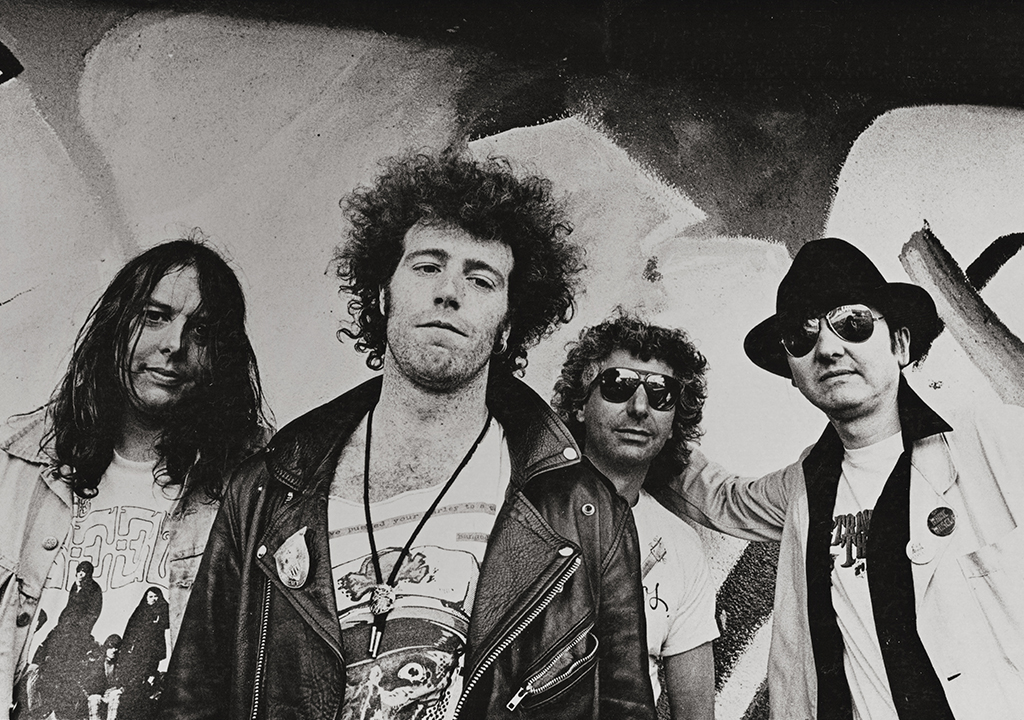
His music for the past 30 years has an enduring edge that many bands of similar vintage lack. Part of this is down to an unlikely set of influences that spans 60s psych, English folk, Seattle art-punks The Wipers and gothic American singer-songwriter David Ackles. Saloman has never been concerned with being psych rock’s King Knut, vainly holding back the tide of progress. “I didn’t want to wear a paisley shirt and have Brian Jones’s haircut,” he says. Nor has he ever given much concern to where he fitted in the grand scheme of the music scene. “I was just rejected everywhere I went but it never dampened my self-belief. In the end I did it all myself.”
Adding to the difficulties, the physical repercussions of his 1982 road accident never completely went away. Then, in 2004, he decided to take a long hiatus from everything – band, label, magazine. It lasted seven years, until 2011.
“I had more important things going on,” he nods. “My mum was dying, my daughter had just split up from a long-term relationship and was heartbroken. I was sick of London. I thought: ‘If I don’t move I’ll be stuck here for the rest of my life.’”
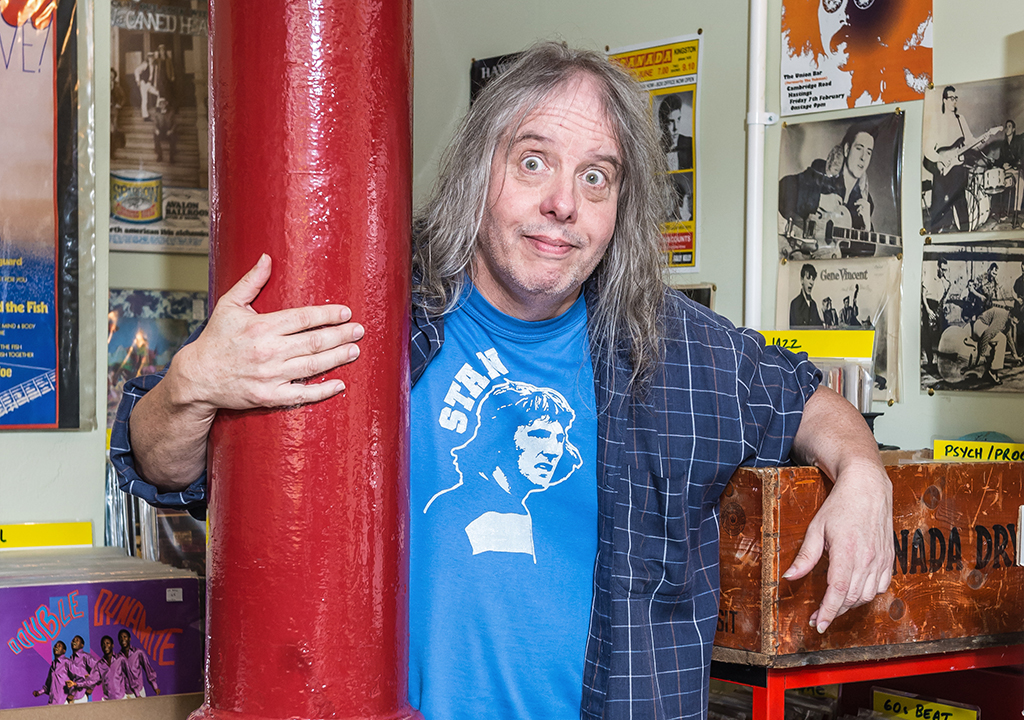
Saloman relocated to Hastings in 2011. It was a life-changing decision, Not least because it fired him up creatively once again (the Bevis Frond’s 2011 album The Leaving Of London is among his best work). No less importantly, he decided to take advantage of his years of record collecting experience and opened Platform One in nearby Bexhill.
“I thought it would be a fun thing to do, and it’s taken my life over,” he laughs.
As we perch on the shop’s comfy sofa, a family enter. The dad is in search of Amon Düül II. “I’ll be with you in a minute,” Saloman calls to them cheerily.
“It’s massively exceeded expectations,” he says of Platform One’s success before turning to his own achievements: a self-sufficient career as a unique musician, a record shop owner and a lightning rod for people seeking out things that sit well outside the norm.
“Being able to do what you wanna do is success,” he explains. “In musical terms, I’ve been able to put out my own records and have an okay career for thirty years. But if you think success is selling out a couple of nights at the O2, I’ve been spectacularly unsuccessful. That’s just a career standout. It all pales in significance against meeting your wife, having a daughter and QPR winning the league in 1967.”
His high work rate is partly down to having a family to support. But he also gets bored easily. “I have to be doing about ten different things all the time. If I’m not doing two things at once, I get twitchy.”
It sounds like he might be planning Frond album number 23. He grins.
“I am, actually. How did you know?”
Example 22 is out now via Woronzow. The Bevis Frond back catalogue is reissued by Cherry Red.
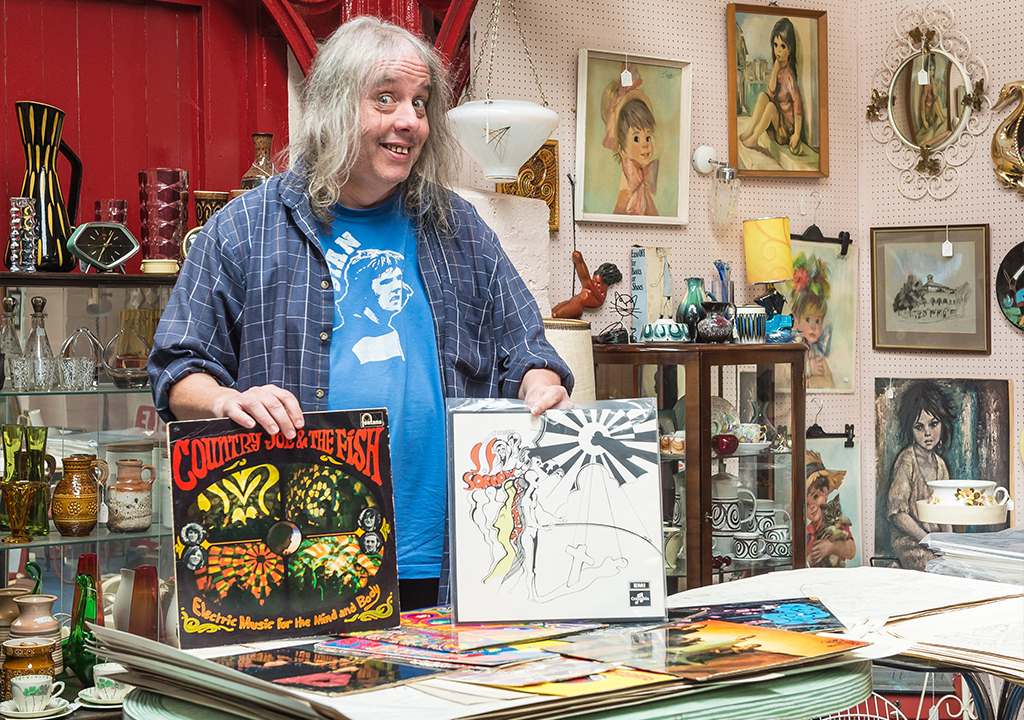
Frond Memories: Nick Saloman’s favourite cult psych albums – as of today, that is.
Country Joe And The Fish, Electric Music For The Mind And Body (Fontana, 1967)
“It was their first album, supposedly created to trip to. I bought it when I was fourteen and had no idea about that kind of thing. Great lyrics, great playing, great sleeve. It sold quite healthily in Britain, but an original in nice condition is pretty rare.”
How much for an original? £30-£40
Savage Resurrection, The Savage Resurrection (Mercury, 1968)
“This is a bunch of long-haired Californian teenagers trying to be Jimi Hendrix and Cream and not really getting it right but still sounding great. I got it because of the cover – a freaked-out sleeve, long hair and two guitarists. I thought: ‘This has got to be fantastic.’”
How much for an original? £45
The Pretty Things, SF Sorrow (Columbia, 1968)
“They were one of the few bands that were a convincing psychedelic band after being a beat group – The Beatles were another. Defecting Grey came out first as a taster to this new direction. It’s their only concept psychedelic album and it’s a masterpiece.”
How much for an original? £75-£500 (mono original)
Love, Forever Changes (Elektra, 1967)
“Is this being obvious? The thing is, this fits in perfectly with what was going on at the time as psych developed. They were on a very cool label and they look the part. It sounds very out-there, but also sounds like Burt Bacharach on acid.”
How much for an original? £75-£450 (mono original)
Caravan, Caravan (Verve, 1969)
“There’s nothing psychedelic about their other albums, but this one certainly is, coming out of that Soft Machine/Canterbury school. Beautiful songs, lovely playing and very trippy.”
How much for an original? £80-£150
Platform One Records is open Thursday-Saturday at Eras Of Style, Terminus Road, Bexhill-On-Sea, TN39 3LR.

